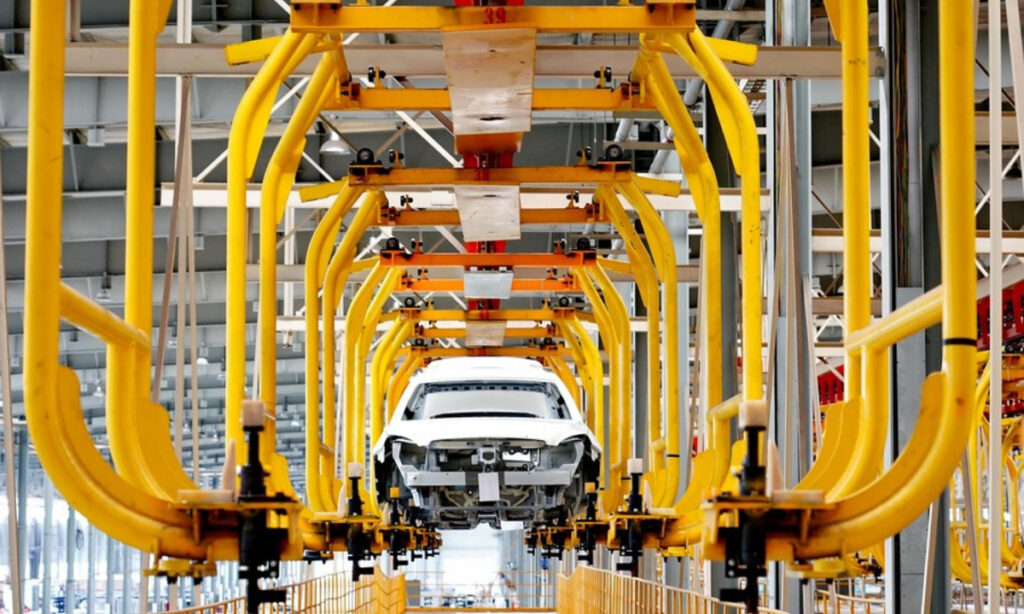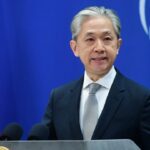The US has reportedly expanded scrutiny targeting imports of electric vehicle (EV) batteries and components from China, citing so-called “forced labor,” which Chinese experts said is a fabricated excuse for the US to step up containment of China’s booming EV industry out of fear that it will fall behind China in the sector.
The US’ blockade is “reckless and short-sighted,” and will end up being a yoke that hinders its own economic and tech development, Chinese experts said, while urging the US to take an objective attitude on global industrial competition and seek joint growth with fair competition and win-win cooperation.
A US act that bans the import of goods made in Northwest China’s Xinjiang Uygur Autonomous Region has extended its focus from solar panels, tomatoes and cotton apparel to include new items such as lithium-ion batteries, tires and major automobile raw materials, Reuters reported on Friday.
When shipments are detained, the US Customs and Border Protection (CBP) provides the importer with a list of examples of products from previous reviews and the kind of documentation required to prove they are not made using “forced labor,” according to the report. The document was updated between April and June of this year to include EV batteries, tires, aluminum and steel, the report said, citing a CBP spokesperson.
“The US’ move is nothing unusual, as it has become the US’ strategy to contain leading Chinese industries such as 5G and artificial intelligence (AI) with whatever excuses it can come up with,” Li Yong, a senior research fellow at the China Association of International Trade, told the Global Times on Friday.
Li further pointed out that the US is a “destroyer of rules and order” and “fabricator of groundless rumors,” and frequently resorts to coercion for continued hegemony and tech supremacy.
“As China’s photovoltaic industry was a success in overtaking others from far behind, the US is afraid that China’s booming EV sector would beat that of the US too,” Wang Yiwei, director of the Institute of International Affairs at the Renmin University of China, told the Global Times on Friday.
However, the US’ import scrutiny has only a slight impact on China’s exports of EVs, EV batteries or other components, as Chinese manufacturers usually avoid exports to the US market due to geopolitical tensions, Cui Dongshu, secretary general of China Passenger Car Association, told the Global Times.
“In the first six months of this year, Chinese new-energy passenger cars accounted for 60 percent of global output. The country’s new-energy vehicle (NEV) exports have remained robust, which underscores the strength of China’s NEV industry and injects strong momentum to the global NEV market,” Cui said.
“It seems that the US’ crackdown on China’s EV sector is forceful, but in fact, it’s reckless and short-sighted. Rather than blockade and restrictions, the US should seek mutual development in a healthy environment of fair competition and win-win cooperation,” Li said.
Wang warned that the US’ unreasonable move of attempting to exclude China from the global EV industry chain will serious disrupt the global industrial and supply chain while impeding the green energy transition.
As part of its efforts to build EV batteries with domestic supply chains instead of relying on China for essential parts, the Biden administration in April introduced two new requirements – which apply to the sourcing of car battery components and critical minerals – for new EVs to qualify for $7,500 tax credit.
However, research conducted by Nikkei and Kyushu University showed that about 60 percent of 28 indexes measuring the health of the global EV supply chain would deteriorate in 2030, if China is excluded, according to Nikkei on Friday. In addition to rising costs, the emissions caused by Sulphur dioxide and PM10 – both air pollutants – will increase by 17 percent and 2 percent, respectively. In terms of human rights, seven among ten indexes including low-payment labor and child labor will also worsen, it said.
(Global Times)




